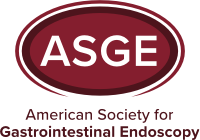Emory University School of Medicine
Emory University School of Medicine
615 Michael Street
Suite 201
Atlanta, Georgia 30322
404-727-5596 (V)
Website
1 Position Available
Program Type: Both ERCP & EUS
Authorized Administrative Official: Tania L. Davis (email)
Program Director: Steven Keilin, MD, FASGE (email)
Duration: 1 Year
Inclusive Dates of the Program: 7/1/2025 to 6/30/2026
Program Website: med.emory.edu/departments/medicine/divisions/digestive-diseases/education/advanced-endospic.html
Accepts applicants from outside of North America? Yes
Accepts applicants with J1 visas? No
Accepts applicants with H1B visas? No
Accepts applicants with E3 visas? No
Supervised ProceduresProcedure |
Faculty Involved in AEF Training | Total Annual Volume | Annual Volume with hands-on AEF Involvement |
|---|---|---|---|
| ERCP | 5 | 800 | 500 |
| EUS | 4 | 900 | 300 |
| Lower GI EMR | 5 | 150 | 50 |
| Esophagogastroduodenal EMR | 5 | 100 | 50 |
| Esophagogastroduodenal ablation (e.g., RFA) | 5 | 70 | 30 |
| Small bowel enteroscopy | 3 | 250 | 100 |
| ESD | 0 | 0 | 0 |
| Bariatric endoscopy | 1 | 40 | 0 |
| POEM | 2 | 100 | 80 |
| Other (specify)
Cholangioscopy |
5 | 50 | 30 |
Unsupervised Trainee ActivitiesProcedure |
Value |
|---|---|
| General GI procedures (per year) | 500 |
| Inpatient service (weeks/year) | 0 |
| Ambulatory clinics (per year) | 0 |
| Committed time for research (days/month) | 10% |
Program Reporting Summary
The ASGE Training Committee requested that each AEF program voluntarily submit an annual report summarizing their advanced endoscopy procedure volume. You can view the provided report below.
Requirements for Application
- Standard ASGE Application Packet
- ASGE Application
- Post-Undergraduate Education
- USMLE Scores
- Certification of Completion of Residency
- Prior to appointment in the advanced endoscopy fellowship, fellows should have completed a three-year ACGME-accredited gastroenterology fellowship
- Fellows from non-ACGME-accredited programs must have completed at least three years of gastroenterology education prior to starting the fellowship
- Personal Statement
- Curriculum Vitae
- 3 Letters of Reference
Additional Information about Program
The Emory Division of Digestive Diseases Advanced Endoscopy Fellowship Program at Emory University is a one year program that trains fellows who have completed a three year fellowship program in the United States. The Emory Digestive Diseases program accepts one advanced fellow each year. The program offers training in EUS and ERCP as well as multiple other advanced endoscopic modalities.
The program is led by the Emory Pancreaticobiliary faculty group within the Division of Digestive Diseases:
Saurabh Chawla, MD
Steven A. Keilin, MD, FASGE (Program Director)
Vaishali Patel, MD (Associate Program Director)
Jordan Orr, MD
Field F. Willingham, MD, MPH, FASGE
The group performs more than 800 ERCP’s and 900-1000 EUS/RUS per year. In addition, single and double balloon enteroscopy, sphincter of oddi manometry, cholangioscopy, enteral stenting, endoscopic mucosal resection, cryotherapy and radiofrequency ablation for Barrett’s esophagus is also offered. Over the past several years, the group has also been performing ESD (endoscopic submucosal dissection), POEM (per oral endoscopic myotomy) for achalasia and G-POEM (Gastric peroral endoscopic pyloromyotomy) for gastroparesis
The advanced endoscopic fellow performs two half days per week of routine endoscopy/colonoscopy and participates in night/weekend calls with the other Emory faculty as a general GI attending.
There are multiple research opportunities available and fellows are expected to develop a research project during their advanced training year. Some areas of current and previous investigation:
Metal esophageal stents
Fully covered metal stents for benign biliary strictures
Endoscopic management of early esophageal cancer
Post liver transplant bile duct strictures
Molecular analysis for the diagnosis of biliary strictures
Endoscopic Ultrasound guided cystgastrostomy
Prevention of post-ERCP pancreatitis
Per-Oral Endoscopic Myotomy (POEM)
EUS guided needle –based confocal laser endomicroscopy (nCLE)
Optical Endomicroscopy Applications in Barrett’s Esophagus
Endoscopic Closure/Suturing for leak, fistulae and bariatric complications
Please Note: All data in this program description is entered on a voluntary basis
